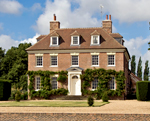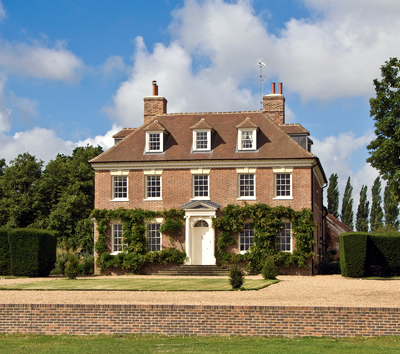Mansion tax worries
Arabella Youens explains why the mansion tax proposed by the Lib Dems would have nasty repercussions for the economy as a whole


The Liberal Democrats' announcement last week that, should they be successful in the next General Election, they'd introduce a ‘mansion tax' on properties worth more than £1 million, has been all but called unworkable by many, and has reignited the debate over taxation targeted at the property market.
Earlier this year, we encouraged Country Life readers to sign a petition to suspend the payment of Stamp Duty to give time for the property market to correct itself during the recession (Property Comment, March 25). Many pointed out at the time that, while property values were soaring, the pill of paying thousands of pounds in Stamp Duty was sweetened, but when the market stalled at the end of 2007, people were put off altogether from buying or selling. Despite some tinkering around the edges, it remains totally unjust that the bands haven't been moved to match the exponential increase in values that we've experienced in the past 10 years.

Today, there are signs that the market is beginning to gather itself, but we're by no means out of the woods, and, as Savills' Lucian Cook points out, further taxation will knock the fragile recovery swiftly off course. ‘We estimate that for a £1.5 million house, this proposal would effectively cut the funds available to buyers by about £60,000 the sum needed to generate an annual cash flow of £2,500 per annum and that figure rises to £250,000 for a £3 million house. There can be little doubt that this would not only reduce the spending power of buyers, but put artificial thresholds in the market, much the same as was the case with Stamp Duty.'
Liam Bailey of Knight Frank also points out that the tax would create a bias against those living in London and the South-East. ‘Many London properties worth more than £1 million are a far cry from what most people would consider a mansion in some areas, they might only be a modest terrace house or even a flat.'
But it's the impact on the wider economy that should probably be the major concern. The top end of the property market over the past 18 months has all but been propped up by international money investing in the UK, and that money in turn leads to annual spending on maintenance and upkeep. But after the bungled ‘non-dom' levy and the new 50% Income Tax rate, another tax on top-end property or any other class of asset will send out the message that the UK isn't a location for well-paid and well-motivated people to live in.
Sign up for the Country Life Newsletter
Exquisite houses, the beauty of Nature, and how to get the most from your life, straight to your inbox.
-
 Rodel House: The Georgian marvel in the heart of the Outer Hebrides
Rodel House: The Georgian marvel in the heart of the Outer HebridesAn improving landlord in the Outer Hebrides created a remote Georgian house that has just undergone a stylish, but unpretentious remodelling, as Mary Miers reports. Photographs by Paul Highnam for Country Life.
By Mary Miers
-
 380 acres and 90 bedrooms on the £25m private island being sold by one of Britain's top music producers
380 acres and 90 bedrooms on the £25m private island being sold by one of Britain's top music producersStormzy, Rihanna and the Rolling Stones are just a part of the story at Osea Island, a dot on the map in the seas off Essex.
By Lotte Brundle